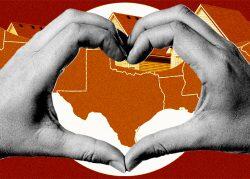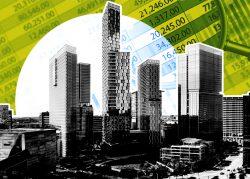The makeover of downtown Dallas’ skyline took a leap forward with approval of four mixed-use projects that would bring in billions of dollars of development.
The Dallas City Council approved four proposals to provide economic grants and tax incentives toward development of the projects in the downtown Dallas area as it works to boost the area’s economy, the Dallas Business Journal reported.
The developments include the Newpark project planned for Canton Street just south of Dallas City Hall by developer Hoque Global; a mixed-use community made up of hundreds of urban homes next to the University of North Texas at Dallas campus, also by Hoque Global; an almost $500 million mixed-use project called North End; and a 47-story high-rise planned for downtown Dallas’ east side.
Read more


The Dallas City Council voted Wednesday, June 22, 2022, to provide up to $96.1 million in incentives for the Newpark development by Hoque Global, which is working with Omaha-based partner Lanoha Real Estate Co. on the roughly $380 million first phase.
The council expressed support for the development as a means of filling up one of the city’s most vacant sectors.
“Newpark Dallas in Southern Downtown will be a catalyst to help take our city to new levels of economic growth by opening doors to new opportunities as our city grows south,” said Mike Hoque, CEO of Hoque Global, in a statement.
District 2 Council member Jesse Moreno said in a statement that the project will “re-energize” the southern portion of Downtown Dallas, and will transform the area into “a walkable mixed-use neighborhood, bridging the Convention Center, Dallas Farmers Market, and the Cedars.”
The second project by Hoque Global approved by the council will develop 270 acres in Dallas’ southern sector right next to the University of North Texas at Dallas, according to the publication. It will include a town center in its core along with commercial buildings and green space.
“A large-scale, mixed-use, multi-phase development in this location will rewrite perceptions of investing in and moving to Southern Dallas,” Hoque said in a prepared remark.
“We hope University Hills will be the first of many community-driven and neighborhood-building developments bringing much-needed quality jobs and housing for the area to grow.”
The council approved up to $31.4 million in tax increment financing for the first phase of the project, and the initial phase is slated to have over 500 single-family homes, 250 multifamily units and nearly 200,000 square feet of commercial space.
Next up, the resolution to approve $18 million in property tax abatements and grants for the North End project is also expected to help bolster the city’s business development by serving as a major hub for Goldman Sachs.
The investment banking giant is expected to create a minimum of 5,000 full-time jobs with an average base salary of $90,000 at this new office tower development by the end of 2028.
Goldman Sachs already has over 4,000 employees across Dallas, and while some council members questioned the need to provide funding for such a major corporation, the general consensus agreed that this investment would be most beneficial for downtown.
“So even after our abatement, we’re still making double in tax revenue off of this one building than the entire North inside. And the tax abatement doesn’t apply to any of the future phases, so those will be coming in at full tax revenue to the city,” Robin Bentley, director of the office of economic development for the Dallas City Council, said during the June 22 meeting.
Finally, the East Quarter high-rise project by Dallas-based architect HKS will bring 800,000-square-foot of residential space by spring 2025, according to the Texas Department of Licensing and Regulation. The start date is listed as September 1, as reported by the publication, and will also include a new 20-story mixed-use development with retail, office and residential space.
If each of these projects continues smoothly, the city of Dallas will see about 2,000 new multifamily residential units, hundreds of new single-family homes, more than a million square feet of new office and retail space, multiple hotels, and some of the largest high-rise and skyscrapers in the city.
[Dallas Business Journal] — James Bell
